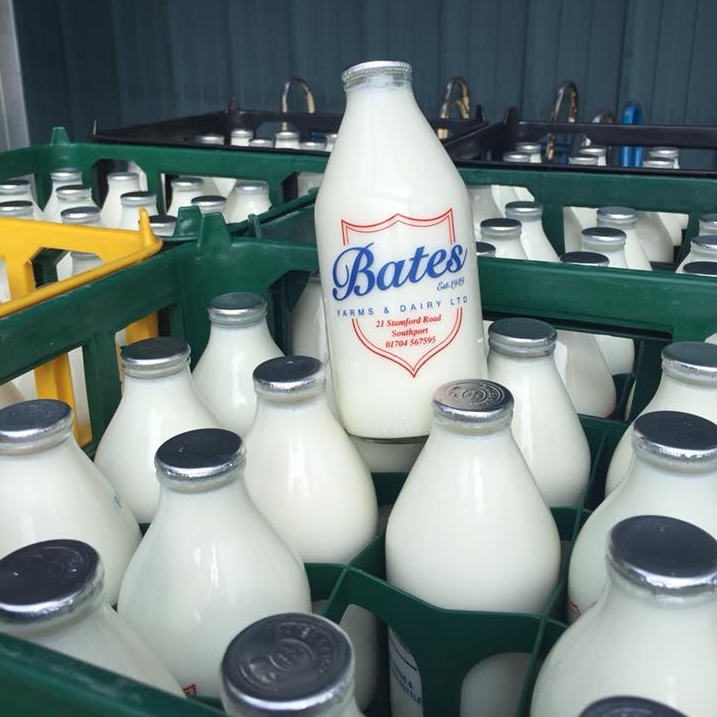
Go Green Go Glass is our newest campaign, highlighting the importance of reducing our impact on the environment through the reduction in our plastic consumption by returning to the use of the traditional glass pint.
The traditional way your milk used to get delivered. The glass bottle was used for decades, holding 1 pint or in modern terms, 568ml, and sealed with a foil pressed top - they were once the only way to get your milk delivered (unless we're talking about the milk churn!)
Glass is generally seen as fragile but in reality this is not the case. Glass milk bottles
are made with significantly thicker glass compared to a wine glass for example.
This makes them quite durable.
Glass is chemically and thermally resistant which allows glass bottles to be rinsed
and sanitized safely for re-use. A process which can’t be safely carried out with most
plastic bottles.
In addition glass can’t be pierced or leak, and when the bottle has come to the end
of it’s usable lifespan the glass still remains fully recyclable.
Even in the case whereby glass finds it’s way into the environment; unlike plastic bottles
it breaks down into harmless natural particles which are harmless to life.
Glass may be heavier than plastic bottles, but the additional weight of a glass bottle
represents only a small portion of the overall weight given the liquid inside, therefore
this impact is neglibile for transport.
The first step is to reduce your personal consumption of plastics. By choosing to order glass instead of plastic you reduce demand and by consequence production. We now provide Whole, Semi and Skimmed milk in glass as well as organic variants along with fruit juices, plant milks, flavoured milks and more.
If you can’t reduce your consumption, then the next best step is to reuse. In regards to glass milk bottles they can be reused many times safely; whereas plastic bottles can’t as they can not be properly sterilised.
Once the material has been reused as many times as possible it is time to recycle it. Glass can be recycled indefinetly with no degradation, whereas plastic can only be recycled a limited number of times.
Once the product has been recycled as many times as is possible it is time for disposal.
Glass shouldn't have this problem, however even when glass does find it's way to the landfill;
it is a lot better for the environment compared to plastics.
Plastics on the other hand can cause serious environmental harm - leeching chemicals and potentially breaking
down into microplastics causing damage to marine and wildlife.

1 Pint of milk is equivalent to 568ml, or slightly more than half a litre. If you want to accurately calculate how many glass pints you'll need to replace your plastics, use the tool below:
Simply rinse your bottles and place them out in your delivery or collection basket and your milkman will collect them on your next delivery day.
Microplastics are defined as plastic particles less than 5mm in size; although
a lot are far smaller. Because plastic is not bio-degradable it breaks down gradually
through wear and abrasion.
This process is slow and results in many tiny plastic particles finding
their way into the environment. These plastic particles are now finding their
way into the food that we eat and the effects on us and nature are as yet
not fully known.
